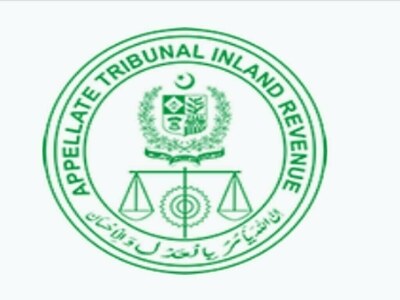ATIR Rules Against Sealing Retail Outlets, Cites Disproportionate Harm
ISLAMABAD: In a noteworthy ruling, the Islamabad bench of the Appellate Tribunal Inland Revenue (ATIR) has asserted that the sealing of a taxpayer’s retail establishment inflicts unwarranted damage on both the business and the broader economic landscape. The ATIR emphasized that such measures undermine the efficient collection of taxes, which contradicts the principle of proportionality.
The detailed judgment also addressed the court’s discretionary power regarding an appellant’s request to withdraw an appeal. It further clarified the procedural mandates and legal structures that govern the sealing of a registered entity’s business site for breaches of Rule 150ZEO of the Sales Tax Rules, 2006.
The ruling was penned by M M Akram, the senior judicial member of the ATIR, who has a history of authoring influential judgments on novel legal matters. A tax consultant based in Karachi, Basharat Qureshi, noted that the presence of judicial members within the ATIR, selected through a merit-based process by the FPSC rather than lateral appointments, provides crucial safeguards for taxpayers against potential overreach by the tax authorities. Qureshi suggested that these members should be considered for elevation to the high court to lead tax benches.
Case Background
The case originated from a complaint alleging that the taxpayer had been issuing invoices lacking QR codes, or non-POS invoices, amounting to Rs10359. Based on these accusations, the CCIR resolved to seal the retail outlet.
Subsequently, the DCIR drafted a sealing order, which was then passed through the Additional Commissioner before reaching the Chief Commissioner, LTO, Islamabad, who ultimately issued the contested order.
In response, the taxpayer directly appealed to the ATIR. However, during the appeal’s third hearing, the taxpayer submitted a request to withdraw the appeal, which was denied due to the significant legal issues at stake.
The ATIR subsequently identified the following legal questions:
Key Questions
- Q1. Does the decision dated March 07, 2025, to seal the taxpayer’s business premises without prior issuance of a show cause notice or verification of the alleged invoices, violate the principle of natural justice and procedural fairness?
Regarding the initial question, the ATIR concluded that the tax authorities’ actions in sealing the premises, given the procedural flaws, clearly breached the principles of natural justice and procedural fairness.
The ATIR stated that the failure to issue a show cause notice and to afford the appellant an opportunity to present their case represented a grave infringement of their right to be heard. Moreover, the absence of invoice verification, the unauthorized commencement of the sealing process by an officer lacking the requisite authority, and jurisdictional errors further compromised the validity of the action, rendering the sealing order unlawful.
- Q.2 Did the Commissioner’s decision to seal the taxpayer’s business premises and impose a penalty appropriately reflect the principle of proportionality in relation to the alleged tax evasion?
The ATIR noted that sealing a business is a highly forceful measure. The tribunal suggested that such an action might not always be the most effective way to ensure compliance with tax laws.
Therefore, it is essential to determine if there are alternative measures within the legal framework that are less disruptive yet capable of achieving the required compliance. In this context, section 40B of the Sales Tax Act, 1990 offers an alternative approach to securing tax compliance.



Comments (0)
No comments yet. Be the first to comment!
Leave a Comment